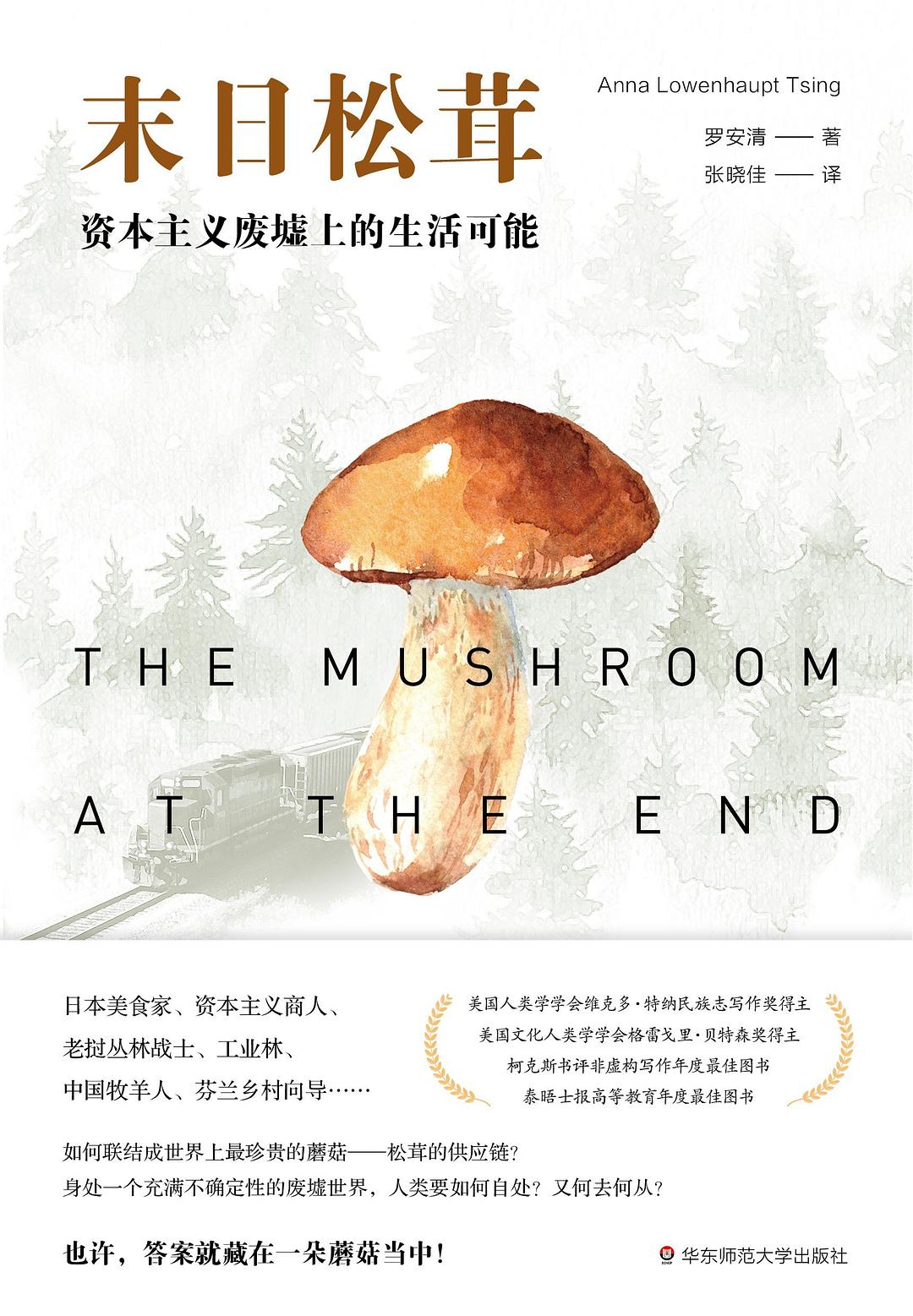WULOLIFE
《末日松茸:资本主义废墟上的生活可能》作者:华东师范大学出版社
《末日松茸:资本主义废墟上的生活可能》作者:华东师范大学出版社
Couldn't load pickup availability
Description
内容简介 · · · · · ·
★美国人类学学会维克多·特纳民族志写作奖得主
★美国文化人类学学会格雷戈里·贝特森奖得主
★柯克斯书评非虚构写作年度最佳图书
★泰晤士报高等教育年度最佳图书
【编辑推荐】
*日本美食家、资本主义商人、老挝丛林战士、工业林、中国牧羊人、芬兰乡村向导……如何讲述珍稀松茸供应链的故事?
*乌托邦想象看起来困在一个单程未来里,身处一个充满不确定性的世界,人类要如何自处?又何去何从?
*在一朵缠绕着人类经济活动、种族历史、自然生态及末世生存策略的独特蘑菇当中,或许藏有答案。
【内容简介】
在横跨日本东京与京都、美国俄勒冈州、中国云南、芬兰拉普兰等地的田野调查中,作者跟随一条鲜为人知的商品供应链,一步步呈现珍稀松茸的“身份转译”:在废弃工业林悄悄破土而出,被遁入山林寻求自由的瑶族、苗族与东南亚裔采摘者收集,再通过竞价激烈的保值票市场,累积层层价值进入日本,化身为带有强烈象征的礼物。
也提一个更宏观的提问——在迈进“人类世”的此刻,不强调发展与进步的社会是什么模样? 人类是否能与各物种保有互不和谐、但又无须掠夺的和平共存?
===============================================
人们很少会发现一本书既有最佳意义上的学者风范,又像是精心构思的小说中流畅的写作。《末日松茸》就是这样一部出色的作品,构思巧妙,读起来令人愉悦。——玛丽莲·斯特拉赫恩(英国剑桥大学社会人类学荣誉退休教授)
须在资本主义废墟、也就是有些人称为“人类世”的时代当中求生,那生态以及生存策略彼此之间,能形成何等出乎意料的纠结与联系。在本书中,作者借着非比寻常的全球化的松茸,提出了美妙非凡的实例。——布鲁诺・拉图尔(人类学家、社会学家)
本书选用松茸做为透镜,检视当代的环境历史、生产供应和科学。伴之以韵味十足的散文体,尖锐而透彻的智识,持续的创造力和原创性,作者以崭新而深刻的方式串联起各个迥异的主题,跨越了数量惊人的多种领域。本书注定成为经典之作。——迈克尔·多芬(美国耶鲁大学社会生态学、人类学教授)
科学家和艺术家深知,对于一个庞大主题的掌握之道,通常题的细小面向,进而从中揭露全貌。我们从雀鸟的嘴喙形状得以见到整体的演化。于是,通过对松茸这个迷人菌菇的近距离观察,作者探讨生态危机如何发生,又为何持续。她以透彻分析批判过度粗略的简化论;而对于人类处境现况,她则以思考理性和人性行为的可能,取代恐慌的反应。在一个急迫且凶猛的遭遇可能盖过人类理智的处境下,她提供了世人一种真切的深思方法。——厄休拉·勒古恩(美国科幻文学、女性主义、儿童文学作家 )
作者简介 · · · · · ·
作者简介:
罗安清(Anna Lowenhaupt Tsing,加州大学圣克鲁兹分校人类学教授,曾在丹麦奥胡哈佛大学、芝加哥大学担任客座教授。研究方向为文化与政治、女性主义、全球化、多物种人类学、社会景观和生态学。2018年(RAI)
译者简介:
张晓佳,复旦大学中文系艺术人类学与民间文学博
